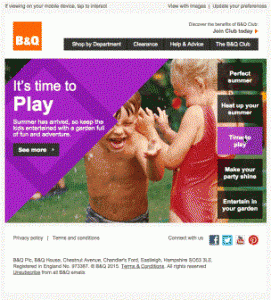Job interviews can be nerve-wracking, but you’ve come to the end of yours and you are feeling hopeful about receiving an offer. You prepared for any questions they might ask and you nailed every one – even the tough ones. Then the interviewer asks, “Do you have any questions for me?” Your heart sinks. You were so hung up anticipating the questions they would ask that you didn’t prepare any yourself. But after a few seconds, you unscramble your brain and ask a few mundane questions that pop into your head.
In today’s down economy, the job market is hyper-competitive with hundreds of hopefuls chasing every vacancy. Having good qualifications sometimes isn’t enough. The interviewer is looking for someone who stands out from the crowd. And if you don’t ask the right questions at the end of your interview, you will look uninterested and your chances could plummet from good to bad in a heartbeat.
You can avoid this awkward moment by asking pointed questions that will make the interviewer sit up and take notice. Don’t squander this golden opportunity to shine. Not only will you leave having made a good impression, but the answers you receive can provide useful information. They can give you insight into the position and the company, and help you decide if this is the right job for you.
It’s generally not a good idea to grill the interviewer about pay, holidays and benefits. This can make you appear more interested in what the employer can do for you, rather than what you can contribute to the company or organisation. Leave this for the next stage.
Take the time to prepare a list of questions. Include those that will give you more information about the culture of the company, the day-to-day responsibilities of the position you’re applying for and what your boss is like. A great list of questions can be found on Robert Half’s website but here’s a few that should go on the list:
1. Why is the position open and where does it fit into the overall structure of the company?
Assessing your role and its place in the company tells the interviewer that you are serious about the job and eager to do well. You need to know if there are any red flags associated with the position. Why did your predecessor leave? Were they fired or promoted? The answer will tell you about management’s expectations and give you an idea if the job fits in with your career plan.
2. What is the work culture like?
You want to be recognised for your work and move up. For this, you need a positive work environment. Will you be working with like-minded people? Will you be able to work well with them? This shows the interviewer that you care about where you work and are keen to build strong professional relationships.
3. What are the key issues facing your company and how do you plan to overcome them?
It’s important to do some research about the position you are applying for and about how the company is performing. They may have introduced a new product or service. By discussing this, you can engage with the interviewer in an informed way and show them that you have something to contribute. It also signals to them that you are interested in the job and the employer.
4. How do you measure performance?
It’s important to know how your performance will be evaluated. Is there a formal review process or is it measured in another way? The answer will help you understand what matters to the company, so you can progress. The question shows the interviewer that you appreciate the value of delivering good results and are motivated to succeed. This could convince them that you would make a valuable addition to the team.
5. What development prospects and training opportunities do you offer?
If you want to advance your career, it’s important to join a company with good opportunities to progress. This question highlights your keenness to learn and grow, as well as your commitment to self-improvement to add value to the company.
6. What happens next?
You may need to know about potential dates for further interviews. People are often too intimidated to ask this, but it shows that you are confident and business like. Don’t make a big deal of it, simply say that you are impressed with the company and when can you expect to hear from them.
Use these questions to find out as much about your potential employer as possible, and also to highlight your skills and experience to show why you are the right person for the job.
(159)





